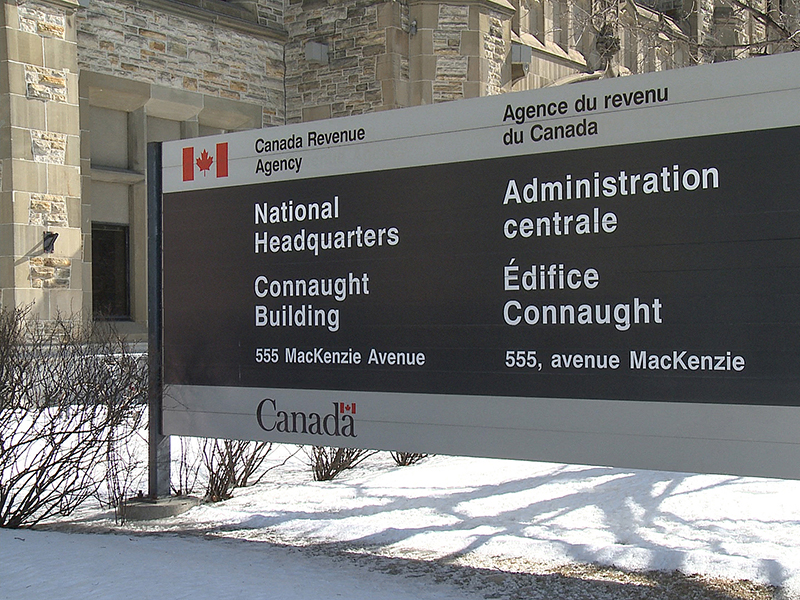
With interest rates falling and equity markets soaring, investors looking to borrow money to invest in the market is, once again, becoming more common. Over the summer, the Canada Revenue Agency (CRA) updated its comprehensive folio on the topic of interest deductibility. Most of the changes are technical and don’t apply to your average taxpayer, but the folio has been revised to add a reference to some recent case law on the meaning of the phrase “for the purpose of earning income from a business or property.”
Under the Income Tax Act, interest expense is considered a capital expense and is generally not deductible unless it meets specific requirements. First, it must be an amount paid or payable in the year under a legal obligation to pay interest, and the amount must be reasonable. In addition, when funds are borrowed, the money must have been acquired for the purpose of earning income from a business or earning income from property (i.e., investment income).
The updated folio confirmed that the phrase “for the purpose of earning income from a business or property” does not include a reasonable expectation of capital gains, referencing a 2017 Tax Court decision. This concept has often caused some confusion among investors who regularly ask about writing off interest expense to buy investments that don’t generate income and are primarily held to earn a capital gain over time.
The good news is that the CRA will generally take a lenient approach. For example, where funds are borrowed to make an investment that carries a stated interest or dividend rate, the income-earning test will be met and interest will generally be deductible “absent a sham or window dressing or similar vitiating circumstance.”
It’s important to note that the rate or amount of interest or income earned on the investment need not be higher than the interest expense to entitle you to write off the entire expense, nor is the interest deduction restricted to the amount of income earned.
For example, if your client borrows at 5% to purchase an investment that yields 3%, they can still deduct the entire 5% interest expense and aren’t capped by the 3% income on the investment.
When an investment doesn’t carry a stated interest or dividend rate, such as is the case with publicly traded common shares, the CRA generally considers interest costs on funds borrowed to purchase common shares to be tax deductible on the basis that at the time the shares are acquired, “there is a reasonable expectation that the common shareholder will receive dividends.”
But, the CRA notes, it is conceivable that in certain fact situations, this reasonable expectation may not be present. For example, if a corporation has stated it does not pay dividends and that dividends are not expected to be paid in the foreseeable future such that shareholders are required to sell their shares in order to realize their value, the purpose test will not be met and interest won’t be tax deductible if you borrowed to purchase those shares.
Fortunately, however, the CRA’s administrative position, as detailed in the folio, is that if a corporation is silent with respect to its dividend policy, or its policy is that dividends will be paid “when operational circumstances permit,” the purpose test will be met and interest would generally be deductible on funds borrowed to make those investments. The CRA takes the same position with respect to mutual fund investments.
In the folio, the CRA provides two examples of common share investments. In the first, X Corp. is an investment vehicle designed to provide only a capital return to the investors in its common shares. Its corporate policy is that dividends will not be paid, that corporate earnings will be reinvested to increase the value of the shares, and that shareholders are required to sell their shares to a third party in a fixed number of years in order to realize their value. In this situation, since it’s not reasonable to expect any income from such an investment, any interest expense on money borrowed to acquire X Corp. shares would not be deductible.
In contrast, Y Corp. is raising capital by issuing common shares. Its business plans indicate that its cash flow will be required to be reinvested for the foreseeable future, and it discloses to its shareholders that dividends will be paid only when operational circumstances permit or when it believes that shareholders could make better use of the cash. In this situation, according to the CRA, the income-earning purpose test will be met, and any interest on money borrowed to purchase Y Corp. shares would be deductible.
As advisors, we should remind any client who engages in leveraged investing to speak to their tax advisor or accountant to determine whether the interest paid is appropriately tax deductible come tax time.
Jamie Golombek, FCPA, FCA, CFP, CLU, TEP, is the Managing Director, Tax & Estate Planning with CIBC Private Wealth in Toronto.
